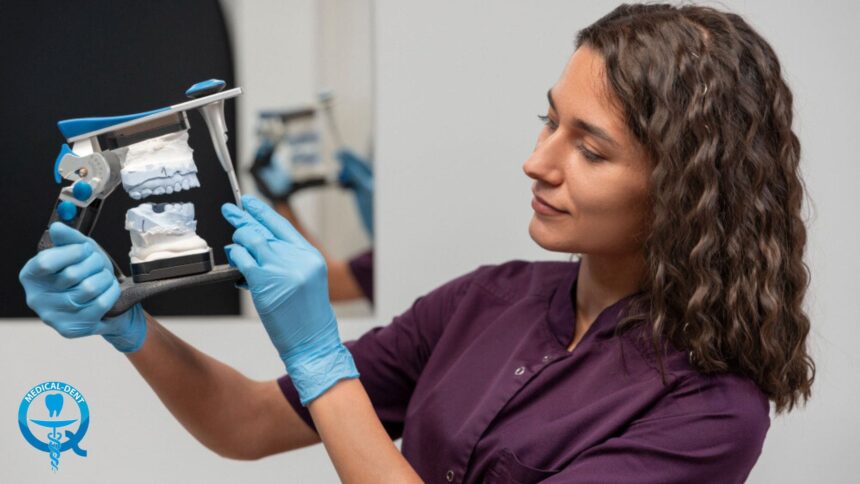More and more patients are opting for implant treatment as a permanent solution for missing teeth. However, one of the prerequisites is an adequate quantity and quality of bone at the planned treatment site. In situations where there is too little bone, bone regeneration is required for the implant procedure. What is worth knowing about this stage of treatment?
When is bone regeneration necessary for an implant procedure?
The loss of a tooth, especially if it has been several months or years, is often associated with bone atrophy at the site of the missing tooth. Bone that is not stressed (i.e. does not transmit chewing forces) gradually becomes absorbed.
Atrophy can also occur as a result of periodontal disease, trauma or inflammation.
If the amount of bone is insufficient for stable implant placement, bone regeneration - i.e. reconstruction - is required.

What does the bone regeneration procedure look like?
The procedure is carried out under local anaesthetic, making it completely painless. The doctor places a special bone-forming material at the site of the bone defect - this can be synthetic, of animal origin, or an autogenous graft (i.e. the patient's own bone, usually from the chin or jaw area). The site is then secured with a special membrane and sutured.
In some cases, bone regeneration for the implant procedure can be performed at the same time as placing the implant, but it is often necessary to wait a few months until the bone has recovered and become sufficiently stable.
The procedure itself is painless thanks to the use of anaesthesia.

What about after the treatment?
After the procedure, the patient may experience slight discomfort, swelling or pain - similar to that after a tooth extraction.
It is important to follow your doctor's advice - avoid exercise for a few days, eat soft foods and take care of your oral hygiene as instructed. Alcohol, hot drinks and smoking should also be avoided.
The healing process takes between 4 and 9 months - after this time, the doctor will assess whether an implant can be placed. It is worth remembering that bone regeneration for the implant procedure is an investment in a healthy and long-lasting smile.
And why opt for implants? We wrote about this in the article "6 reasons why dental implants in the UK are a good choice. However, if you have already made up your mind and want to start implant treatment, it is necessary to contact us or make an appointment at consultation.
IMPORTANT: At our clinic, you can spread the cost of the implant and the cost of the implant in instalments. Importantly, the first 12 months are zero interest and the scheme is regulated by the Financial Conduct Authority - FCA number 619628. If you would like to find out more we recommend our article "Teeth on credit: dental treatment on hire purchase".

